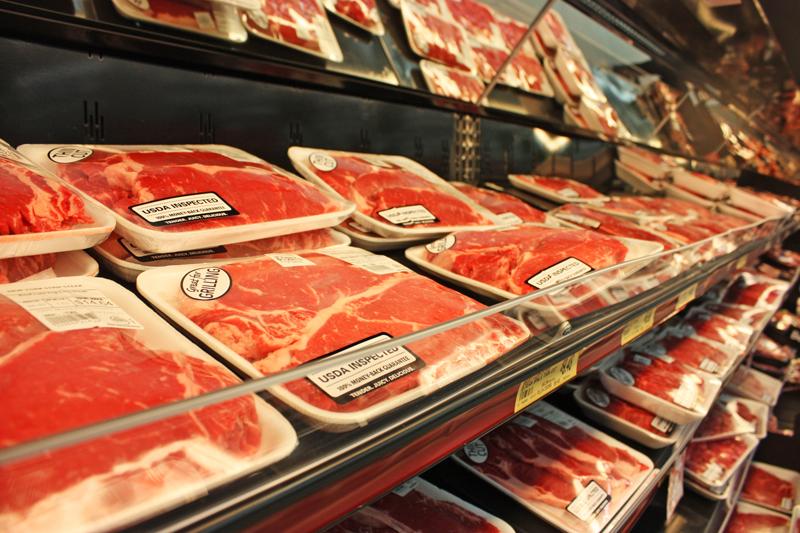Sen. Jamilah Nasheed, D-District 5, has proposed SB 155, which would require labeling on all genetically modified meat and fish (GMOs).
SB 155 amends Chapter 196 of the Missouri Revised Statues. The bill was introduced earlier this month.
Nasheed said she hopes the bill will increase awareness about GMOs.
“Right now, approximately 75 percent of the food in the supermarket is genetically modified,” she said. “People don’t know about it because there are no requirements for labeling.”
Nasheed said she proposed the bill because she believes people have a right to know about the food they are consuming.
Increased hardiness and improved animal health are both potential benefits of genetically modifying meat or fish, according to the National Institutes of Health. However, possible health impacts include allergens and transfer of antibiotic resistors.
“I truly believe that GMOs are here to stay,” Nasheed said. “If genetically modified products are going to be on the shelf, then the people should have a right to know.”
Nasheed compared the labeling requirement to the warnings on cigarettes.
Nasheed said she isn’t arguing that GMOs can cause cancer or allergens. She said she thinks if GMOs were labeled, then consumers may be more aware of what they are consuming.
“If they know that the products they buy contain GMOs, people will become more conscious of what these genetically modified foods entail and how it changes the natural condition of the meat,” she said.
Nasheed said there have not been many investigations on the impact of GMOs because it is a relatively new concept in science today. She proposed consumers look into extensive studies of GMOs and their characteristics to investigate the long-term impact of consuming GMOs.
At MU, GMOs pass through the dining halls, marketing manager for Campus Dining Services Michael Wuest said.
Nasheed said that due to the overwhelming percentage of food having been genetically modified, it is difficult to find foods that are not modified in some shape or form. The lack of labeling increases the possibility that people may be consuming GMOs unknowingly.
Wuest said it is likely that some food CDS provides contain genetically modified ingredients.
“There is a good chance that we consume GMOs, especially corn,” he said. “We have no strict criteria, though some of our vendors do provide us with such information. We look for good products to use in the dining halls.”
Wuest said CDS is conscious of GMOs.
“We do different events such as an ‘Eat Locally Week,’ where we partner with local providers and contacts and the menus feature local items,” he said.
The bill states it will not penalize anyone who genetically modifies food. It does require producers label the meat or fish as having been genetically modified. Failure to do so will result in a Class C misdemeanor.
Nasheed said there has been little to no opposition to the bill so far.
If passed, the bill will go into effect on Sept. 1, 2015. The Missouri Department of Agriculture will disseminate the rules to execute the act.
“Ninety percent of consumers believe that there should be some sort of labeling,” Nasheed said. “There is an advocation for this opportunity.”








